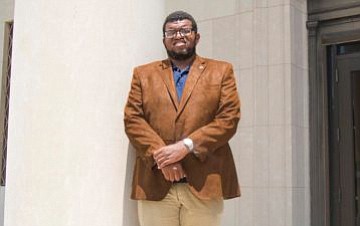Trump and HBCUs
4/13/2017, 9:14 p.m.
Andrew Hairston
I love historically black colleges and universities. I’m certainly biased as a graduate of Howard University. But my admiration for HBCUs extends across my lifespan and the generations that preceded me.
A host of my friends, family members and colleagues are HBCU alumni, and these institutions continue to contribute a great deal of vibrancy to American life and our system of democracy.
My first major case as a lawyer centered around the desegregation of Maryland’s four HBCUs, and I recently wrote two pieces dedicated to the significance and personal history of HBCUs.
I am particularly proud of these institutions for what they have managed to do despite the perennial challenges of systemic racism and inadequate investment.
With all of this in mind, I find myself troubled by the news that broke in late February that the Trump administration, ostensibly under the direction of President Trump’s assistant, Omarosa Manigault, had organized a meeting with numerous HBCU leaders. A photo opportunity emerged, and a peculiar picture of President Trump, Kellyanne Conway, counselor to the president, and the HBCU presidents and chancellors soon made its rounds on the Internet.
To conclude the day’s events, Secretary of Education Betsy DeVos issued a statement asserting that HBCUs are “real pioneers of school choice.”
As a young civil rights attorney and HBCU graduate, I do recognize the validity of some assertions made by the Trump administration in reporting what transpired during the listening session. For instance, enhancing the infrastructure of a number of HBCUs could certainly play a role in increasing the competitiveness of these institutions. However, a brief photo opportunity and press release associating HBCUs with school choice both severely mischaracterize the history and promise of these 105 colleges and universities throughout the United States.
At their founding, many HBCUs opened their doors to students who had been previously denied an opportunity to access a postsecondary education. As they have evolved, these institutions have fortified themselves as supportive spaces for students to refine their commitment to social justice and learn of the significant contributions of members of the black diaspora to the world.
When I think of my experience at Howard, I recall marching to the White House in 2011 to protest the execution of Troy Davis, traveling to Annapolis, Md., to call for an end for the death penalty in Maryland and partnering with grassroots community organizations to canvass in Baltimore as a part of the university’s Alternative Spring Break initiative.
Yes, increased funding, stronger programmatic offerings and better facilities would all undoubtedly assist HBCUs in reaching their full potential in the current global landscape. What the new administration also must understand is that HBCU graduates often leave their campuses with both degrees and a mission to achieve racial and social justice.
As communities of color continue to mobilize against militarized schools and police shootings of unarmed black people, among other issues, the missions of HBCUs and these activists find themselves inextricably linked. Harmful policies advocated by the Trump administration, stand only to exacerbate the push-out of children of color and limit their access to a quality public education.
HBCUs constitute strong and powerful portions of the American story. To demonstrate an earnest interest in these institutions, President Trump and his administration must remain cognizant of the historic and current purpose of HBCUs.
Increasing the available resources for these colleges and universities is one part of the process, but another part, arguably of more importance, is implementing policies across the executive branch that honor and support the goal of HBCUs to achieve a society free of discrimination and bigotry.
The writer is the George N. Lindsay Fellow with the Lawyers’ Committee for Civil Rights Under Law and associate counsel with its Educational Opportunities Project.







